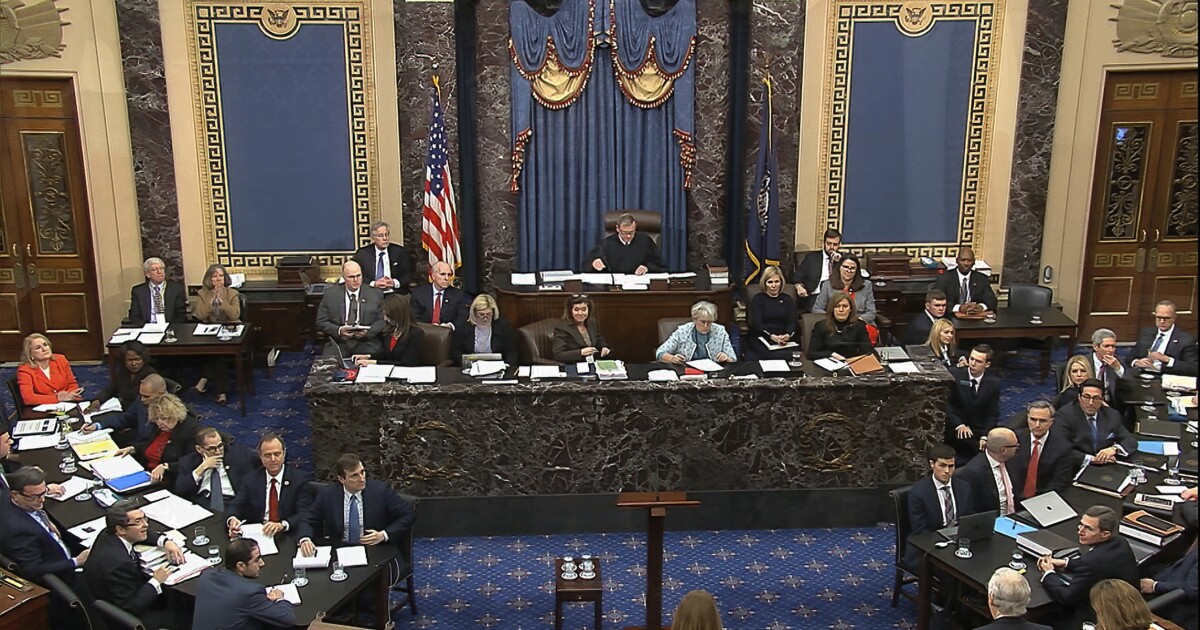

The Senate passed landmark legislation on Tuesday that would provide federal protections for same-sex and interracial marriage, moving it one step closer to becoming law.
The upper chamber voted 61-36, with 12 Republicans joining all Democrats in passing the legislation. The bill will now head back to the House of Representatives, where lawmakers will need to pass an amended version before it reaches President Joe Biden’s desk.
The Respect for Marriage Act does not codify same-sex marriage protections. Instead, it recognizes marriage between two people regardless of their “sex, race, ethnicity or national origin.” The legislation does not require any state to permit same-sex couples to marry but does require all states to recognize any marriage that was legal in the state where it took place under the Constitution’s full faith and credit clause. The legislation also repeals the Defense of Marriage Act of 1996, which defined “marriage” as between a man and a woman.
WHY CONSERVATIVES ARE STAGING LAST-MINUTE PUSH TO OVERHAUL SAME-SEX MARRIAGE BILL
“We can ease the fear that millions of same-sex and interracial couples have that their freedoms and their rights could be stripped away,” said Sen. Tammy Baldwin (D-WI), a sponsor of the bill. “We are guaranteeing same-sex and interracial couples, regardless of where they live, that their marriage is legal.”
The House passed a version of the legislation over the summer, with support from nearly 50 Republicans. The process in the Senate has taken more time amid GOP concerns about religious liberty. Senate Democrats held off on bringing the bill to the floor until after the midterm elections with the hope of gaining Republican support.
Earlier this month, the Senate was able to clear the 60-vote procedural hurdle needed to move forward, passing it 62-37 with the support of 12 Republican members. Drafters of the bill were able to garner enough support from the GOP after Sens. Rob Portman (R-OH), Baldwin, Susan Collins (R-ME), Kyrsten Sinema (D-AZ), and Thom Tillis (R-NC) crafted an amendment to address religious freedom concerns. The amendment ensures religious nonprofit groups will not be forced to violate their beliefs, affirms that right-to-conscience considerations apply to the bill, and makes clear that the bill doesn’t allow for unions of more than two people. Those changes will need to be reflected in the House version before it heads to Biden.
Ahead of the procedural vote, the Church of Jesus Christ of Latter-day Saints also came out in support of the amendment with the religious liberty protections.
“We believe this approach is the way forward,” the Mormon church said in a statement. “As we work together to preserve the principles and practices of religious freedom together with the rights of LGBTQ individuals, much can be accomplished to heal relationships and foster greater understanding.”
Three Republican amendments to address religious liberty concerns — from Sens. Mike Lee (UT), James Lankford (OK), and Marco Rubio (FL) — were voted on Tuesday as part of a time agreement, but each failed ahead of the final vote.
CLICK HERE TO READ MORE FROM THE WASHINGTON EXAMINER
The Supreme Court’s decision to overturn Roe v. Wade prompted the legislation due to Justice Clarence Thomas’s concurring opinion that the downfall of federally protected abortion access should also trigger the reconsideration of “all of this Court’s substantive due process precedents, including Griswold, Lawrence, and Obergefell,” with Obergefell v. Hodges being the 2015 decision that defined marriage as the union of two people, regardless of sex.
House Majority Leader Steny Hoyer (D-MD) has said the House will pass the legislation “as soon as Tuesday” of next week.







